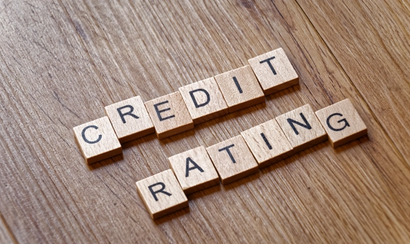Cash-Out Refinance Before the Holidays: Timing Tips
Written by:
Marianne Hayes
Marianne Hayes
Personal Finance Writer
Marianne Hayes is a contributing writer for Own Up. She has been covering personal finance and home ownership for over a decade.
See full bio
Fact Checked by:
Mike Tassone
Mike is a Co-Founder and Chief Operating Officer of Own Up. He has expertise in all areas of residential lending, having led operations for a top 40 lender in the United States.
See full bio

Refinancing your mortgage can reduce your interest rate and lead to a lower monthly mortgage payment. It can also unlock a lump sum of money if you opt for a cash-out refinance, which may come in handy if you're preparing for holiday expenses.
But cash-out refinancing isn't always the best option. You'll want to consider how long you plan on staying in your house to see if the cost of cash-out refinancing is worth the benefits. Your goals and overall financial situation will play an important role here.
Having said that, here are some important things to think about when it comes to refinancing before the holidays.
Pros and Cons of Cash-Out Refinancing Before the Holidays
Depending on your financial situation, there can be benefits to refinancing your mortgage loan before the holidays, such as lowering your monthly expenses and freeing up cash. However, refinancing generally comes with additional costs, which can either cost you upfront or add to your loan expenses.
Below is a closer look at the potential pros and cons of refinancing a home loan, particularly before the holiday season.
Pros of Cash-Out Refinancing Before the Holidays
Between gifts, decorating, holiday parties and travel, this time of year can take a big bite out of your budget. Shoppers planned to spend more than $1,000 on gifts during the 2024 holiday season, according to one Gallup poll. That was a 3.7% increase from the year before.
Below are some potential benefits of refinancing before the holiday costs hit hard:.
- Lower monthly mortgage payments: The main draw of refinancing is that it can allow you to secure a lower interest rate—which ideally should reduce your monthly mortgage payment. Let's say you have a 30-year fixed-rate mortgage with a rate of 7.875%. Your outstanding mortgage balance is $300,000 and your monthly payment is $2,175 (not including taxes and insurance). Refinancing to a rate of 6.75%, for example, would reduce your monthly mortgage payment to $1,946. You could use those savings to cover holiday spending.
- Reduced total mortgage costs: A lower interest rate also means that you'll likely spend less in interest over the life of your mortgage loan. But you'll want to factor in closing costs when calculating your break-even point, which we'll unpack shortly.
- Ability to switch from an adjustable-rate mortgage (ARM) to a fixed-rate mortgage: ARMs typically offer a lower-than-average introductory mortgage rate. After that period ends, the rate will periodically change. That can make it hard to budget, and your monthly mortgage payment could go up over time. Refinancing can be an opportunity to lock in a fixed mortgage rate and avoid a jump in both interest and a higher monthly payment—which is money you could be using for holiday expenses.
Cons to Cash-Out Refinancing Before the Holidays
Refinancing your home loan may sound like a good idea, but you'll still want to look at the big picture before making a decision. Here are some key factors to consider.
- Refinancing often comes with upfront costs like closing costs and fees. Closing costs usually range anywhere from 3% to 6% of the principal balance. Your refinance lender may also charge a loan origination fee or other one-time closing fees. You can choose to pay these upfront, but that may ruin your plans of saving some quick cash before the holidays. If you can’t pay these upfront, you may be able to add these to the loan amount, but that can also impact your monthly payment. Alternatively, you can ask your lender to provide you with a lender credit to cover the closing costs. Effectively the lender will pay these costs on your behalf, but you will be offered a higher interest rate. This can still make sense if you are still able to lower your current interest rate.
- You may not be able to refinance before you need the cash for the holidays. The refinance process typically takes 30 to 60 days from start to finish. That includes: finding a lender, choosing a new home loan, gathering your documents and completing your application, completing a home appraisal, moving through the underwriting process, and closing on your new mortgage.
What Else Should You Consider Before Refinancing Your Mortgage?
If you are trying to close on a cash-out refinance before the holidays, there are a few additional factors that may come into play, such as your break-even point, your home equity, and your credit score.
Your Breakeven Point
Calculating your break-even point can help you decide if refinancing is worth the cost. This will tell you how many months you'll need to stay in the house before you recover those expenses. To figure it out, divide your estimated closing costs by the monthly amount you'll save with your new mortgage payment.
How Much Home Equity You Have
Home equity represents the amount of your home value that you technically own. Calculating it is relatively straightforward: Simply subtract your outstanding loan balance from your home's appraised market value.
You may not qualify for a refinance loan if you don't have sufficient equity in your home. Depending on the type of loan and property, the percentage could vary from as low as 5% up to 20% or 25%. Also keep in mind that you'll likely need to purchase private mortgage insurance if you have less than 20% in your home’s equity.
Your Credit Score
If you're applying for a refinance loan, your credit score will be an important factor that lenders consider. Having strong credit health can help you qualify for the best interest rates and loan terms on a new mortgage loan. The opposite also tends to be true—poor credit can leave you with a high interest rate, which can defeat the purpose of refinancing.
Every lender is different, but conventional mortgages typically require a credit score of 620 or higher. FHA loans, which are backed by the federal government, have lower credit score requirements. With this type of mortgage, it's possible to receive a loan approval with a credit score of 580.
Is It Worth It To Refinance Before the Holidays?
Think about why you're considering refinancing in the first place. Your motivation may be to reduce your interest rate and lock in a lower monthly payment. Freeing up cash flow to put toward holiday expenses can be an added bonus. But before you reach out to a lender, it's wise to review your financial situation to make sure now is the right time to refinance your home loan.
- Evaluate your current mortgage: Is your current interest rate higher than today's average mortgage rate? As of July 31, 2025, the average rate on a 30-year fixed-rate mortgage is 6.72%, according to Freddie Mac. If refinancing won't get you a lower rate, it may not be worth it.
- Calculate your potential savings: Run the numbers to see how much you stand to save by refinancing. Own Up's free refinance calculator makes this part easy. You'll need to estimate your home's current market value and include your outstanding home loan balance. Also consider your break-even point to help determine if closing costs and refinancing fees will outweigh your overall savings.
- Determine if refinancing supports your financial goals. If you're hoping to sell your home within the next few years, refinancing might not make financial sense in the long run. But there are some situations where refinancing can help you achieve your goals faster. For example, you could use a cash-out refinance loan to help you cover holiday expenses, pay for college costs, or make home improvements that increase the value of your home.
What Are Some Refinancing Alternatives?
If refinancing doesn't feel like the right way to go, there are other potential ways to unlock some cash before the holidays.
Home Equity Loan or Line of Credit
While refinancing involves taking out a new mortgage, a home equity loan allows you to keep your existing home loan while assuming a second mortgage. That new loan allows you to borrow against your home equity—usually at a lower rate than you'll find with credit cards. As of Q3 2025, the average credit card APR was 22.83%.
A home equity line of credit, or HELOC, provides you with a credit line that you can draw on as needed to cover all kinds of financial obligations, including holiday expenses. But HELOCs and home equity loans use your home as collateral, so you'll want to proceed with caution.
Personal Loan
A personal loan is an unsecured loan that's offered by banks, credit unions, and peer-to-peer lending platforms. Since there's no collateral attached to the loan, APRs tend to be higher. You'll want to make sure you can afford your monthly payment and are comfortable with the repayment term before borrowing.
The Bottom Line
Refinancing before the holidays may be a good idea if it aligns with your other financial goals and can help you save money on your mortgage. But like anything else regarding your finances, it's best to make an informed decision that's based on your unique financial situation. A professional like a mortgage loan officer can answer your questions and provide personalized guidance to help you make the best choice.


